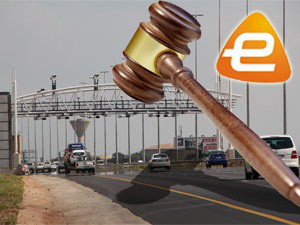
The Western Cape High Court yesterday granted an interdict to the City of Cape Town, halting the South African National Roads Agency's (Sanral's) proposed tolling of the N1/N2 route in the Winelands.
The court ordered that the interdict be granted pending the city's review of Sanral's e-tolling plans in the province. Sanral has also been ordered to hand over documents, including toll feasibility and a strategy report that the city claims the agency has been withholding.
The review date has not yet been set down.
Sanral plans to upgrade a 180km stretch of the national road network in the province, as well as the second borehole at the Huguenot Tunnel, at an estimated cost of R10 billion.
The proposed toll gates will be situated at Joostenbergvalte, Hexpoort and the existing Huguenot toll along the N1. The toll gates on the N2 will be at Kuils Rivier, Sir Lowry's Pass and Bot River.
The city argued that Sanral had no evidence to prove the proposed Winelands tolling project had been properly approved and that the transport minister at the time gave the project the go-ahead, without knowing what the full cost would be.
The city also raised serious concern about the socio-economic impact the proposed tolls would have on poor communities in the province.
Responding to this, Sanral said the proposed electronic tolling of the N1 and N2 in the Winelands would not have a negative effect on the communities of Mitchells Plain and Khayelitsha.
Essential for growth
Sanral said in a statement that it had noted the granting of the interdict and respects the court's decision.
"We will evaluate its implications before deciding on the way forward on the vital issue of upgrading and maintaining the N1 and N2 national roads," Sanral said.
Sanral spokesperson Vusi Mona further defended the agency's decision to implement tolls in the Western Cape. "What was never in dispute is that upgraded and well-maintained roads are essential for economic growth and social development in the Western Cape; this is in everyone's interest. We will study the judgment and determine the way forward."
The Democratic Alliance (DA), which governs the Western Cape province, has described the court interdict as a "landmark victory" in the official opposition's fight against e-tolls.
DA national spokesperson Mmusi Maimane says the party will continue to fight a system that forces people to pay more than is necessary for decent roads. "Besides yesterday's High Court victory, we are campaigning for a referendum on e-tolls in Gauteng and we are fighting against the e-tolling Bill in Parliament."
The Opposition to Urban Tolling Alliance (Outa), which has been leading the fight against e-tolling in Gauteng, says the City of Cape Town's e-tolling court victory marks another blow against Sanral's plans to "ram its plans down society's throat".
Outa chairman Wayne Duvenage says in a statement that the judgment also emphasises Sanral's tendency to withhold relevant information. "This tactic and lack of transparency by Sanral has often been observed by Outa during our protracted legal case over the Gauteng e-tolling system."
Duvenage says in the Gauteng e-tolling case, Sanral claimed the cost of tolling was known before the decision to embark on the Gauteng Freeway Improvement Project was taken.
"Yet in the Cape, Sanral's counsel claimed the opposite, saying that tolling costs couldn't be determined until the decision to build the roads was taken. Contradictions aside, we are amazed that Sanral was prepared to build the N1/N2 Winelands project without knowing what it would cost the road user," he notes.
The battle against e-tolls in Gauteng continues, with discussions on the Transport Laws and Related Matters Amendment Bill postponed following a proposed amendment to the Bill by the ANC.
Outa is also waiting for its appeal against Gauteng e-tolling to be heard in the Supreme Court of Appeal, in Bloemfontein, later this year.
Share